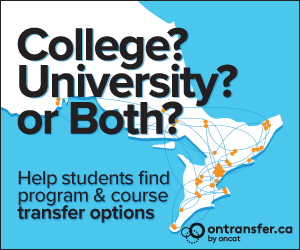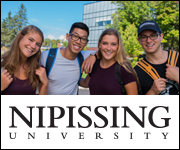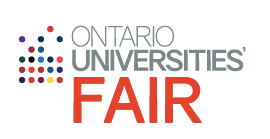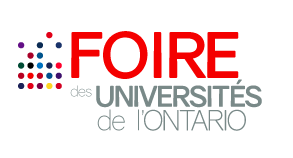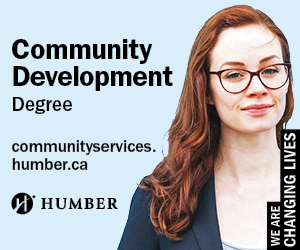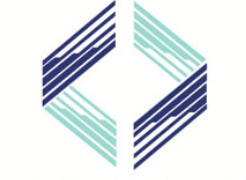 |
|||||||||||||||||||||||||||
| Archive | www.osca.ca | |||||||||||||||||||||||||||
|
The application period is open from June 3 to July 26, 2019, at 11:59 am Pacific Time.
Projects may start as early as April 1, 2020. The Youth Employment and Skills Strategy (YESS) program will provide up to $600M in funding to organizations to deliver a range of activities that help youth overcome barriers to employment and develop a broad range of skills and knowledge in order to participate in the current and future labour market. Support will be tailored to the needs of youth that are facing barriers to employments. Youth who face barriers often include youth who are early leavers from high school, recent immigrant youth, youth from visible minority groups, youth living with disabilities, single parent youth, youth living in low-income households, youth experiencing homelessness or precarious housing, and youth living in rural or remote areas. For these youth, barriers often intersect and they are more likely to be among the youth population who are involuntarily not in employment, education or training (NEET). Acknowledging that some Indigenous youth face unique circumstances, the YESS is designed to maximize opportunities for them, including more culturally-specific supports and services. From: Employment and Social Development Canada
News release Modernized Strategy will Serve Young Canadians Facing Barriers to EmploymentCanada’s continued prosperity depends on young Canadians launching meaningful careers. By helping them gain the skills and experience they need for a fair chance at success, we are investing in our greatest asset—our people. The Honourable Patty Hajdu, Minister of Employment Workforce Development and Labour, announced the launch of the Youth Employment and Skills Strategy (YESS). This new strategy will provide more flexible employment services and enhanced supports for all young Canadians. It will help youth develop the skills and gain the experience they need to successfully transition into the labour market and ensure that no one is left behind. While at an event with the Canadian Mentoring Partnership, part of Big Brothers Big Sisters Canada, Minister Hajdu also announced they will receive more than $6M in funding from Employment and Social Development Canada (ESDC) toward initiatives aimed at connecting young people with mentors who can help facilitate their understanding of the labour market, build resilience and support them as they begin their careers. Did you know that this newsletter has a convenient way of accessing previous newsletter editions? Go to the top of the newsletter page and find the link that says "Archive." When you click on that link, it will take you to all our past newsletter editions dating back to our starting date with Naylor Association Solutions on February 27, 2019. It's a great way of making sure you remain aware of all the information we bring you each week.
By Nicole Trotter, OSCA/ACOSO President and Jennifer Boston, VP, Communications/Past President
The role of the Guidance Teacher-Counsellor has been around for many years. In 1911, the first reference to "guidance" or "occupational planning" was made in a report on technical education needs in Ontario. The Superintendent of Education for Ontario at the time, Dr. John Seath, stated that boys would have made better occupational choices had they received suitable advice in their school years. Following the end of the war in 1918, the Vocational Education Act was passed in order to retrain servicemen after the war. In 1921, it was advocated that this be expanded to provide placement services in the schools, and it was supported that a high school board may appoint one or more qualified officers to offer counselling to the pupils in a school for vocational and educational advancement. This was a unique and initiating action; it stated clearly for the first time that qualified people under the direction of the board should provide vocational guidance. If one has parents that went to school in the 1950s, they will probably tell you stories of the guidance lessons they had in classrooms; primarily information on jobs and salaries was taught. Guidance and career education planning has come a long way since those early years.
Attention Guidance Board Leads!
Any board wishing to take advantage of a bulk board subscription to OSCA for 2019-2020, is asked to email the OSCA office at oscadesk@gmail.com, to take find out what the bulk discounted rate would be for their boards. The more subscriptions purchases, the greater the discount!
There's been a lot of discussion lately about when we'd see the new curriculum document for the Career Studies course (GLC2O) and it's finally here. This document presents the revised and updated curriculum expectations for the compulsory Grade 10 Career Studies course (GLC2O). This revised course supersedes the course outlined in The Ontario Curriculum, Grades 9 and 10: Guidance and Career Education, 2006. Beginning in September 2019, the Grade 10 Career Studies course implemented in all Ontario secondary schools will be based on the expectations outlined in this document. The revised Career Studies course will be available on the new Ontario digital curriculum platform that is planned for launch in fall 2019. The curriculum expectations and the achievement chart for the course are being shared in advance, in the present document, to support program planning. Educators should be aware that, with the exception of this course, the 2006 Guidance and Career Education document for Grades 9 and 10 remains in effect. The Grade 9 course Learning Strategies I: Skills for Success in Secondary School (GLS1O, GLE1O, GLE2O) and the Grade 10 course Discovering the Workplace (GLD2O) will continue to be based on the curriculum expectations outlined in that document. To see the complete document go here. If you'd like to view the differences from the previous curriculum, take a look, as the new curriculum is much more extensive than the old. Today's education system is more challenging than ever and a greater number of students have special needs requiring support beyond those ordinarily received in the school setting. To ensure that the learning rights and safety of all students and staff are not compromised, it is critical that those working in special education have a complete and current understanding of the law and how it guides their day to day actions.
Enroll in these courses and receive up to 50% off as an OSCA member.
The Canadian Academic English Language (CAEL) Test is a test designed to measure the English language proficiency of students planning to study in Canadian post-secondary institutions. CAEL is one of the best tools for identifying students with the right English skills for academic success. It provides an authentic representation of language use in a Canadian academic context. Test takers read articles, listen to a lecture, answer questions, and write a short essay, as they would be expected to do in a first-year Canadian university or college classroom. CAEL is now available as a computer-delivered test, known as CAEL CE (Computer Edition). CAEL CE has been improved to deliver all four components (reading, listening, writing, and speaking) by computer in a single test sitting. For more information for counsellors, please see https://www.cael.ca/counsellors/on
EdTech refers to software designed to enhance teacher-led learning in classrooms and improve students' education outcomes. Check out the EdTech Digest— offering insights, updates, interviews into the rapidly evolving world of edtech for all those involved in any aspect of edtech. Check out the EdTech Magazine - choose your focus between K-12, or focus on Higher Education. So who is EdTeach? The largest and most competitive recognition program in all of education technology recognizing the biggest names in edtech – and newer talents who are shaping the future of edtech. This year, the Ontario universities’ recruitment events are being renamed and branded to be more consistent across all events and websites.
Cette année, les événements de recrutement recevront des nouveaux noms et marquages pour être plus cohérente à travers tous nos événements et sites Web. Please use the link below to see new, important information from the Standing Committee on Student Recruitment
See all 21 Ontario universities under one roof at the 2019 Ontario Universities' Fair (OUF)! The OUF takes place September 27-29, 2019, at the Metro Toronto Convention Centre. Admission is free! The OUF Passport registration website will open in July at www.ontariouniversitiesfair.ca/passport. By registering for an OUF Passport, students receive a QR code that they take to the OUF and get scanned at university booths and presentation rooms of their choice.
It's the easiest way for them to share their contact information to receive more info about the universities they are interested in. OUF Guidance Counsellor Tool Kit Next steps for you:
We hope you find this information helpful. If you have questions, please contact ouf@ouac.on.ca.
The Ontario School Counsellors' Association has a longstanding tradition (over 40 years) of recognizing and awarding those who stand out in the field of Guidance and Career Education. Each year at our annual conference, OSCA recognizes individuals and/or organizations that have made a significant contribution to Guidance and Career Education in Ontario. We can say with confidence that our past award winners have helped thousands of students to find their pathways to successful futures! OSCA's awards are an excellent way of recognizing your most dedicated peers in the following categories:
|
|||||||||||||||||||||||||||





